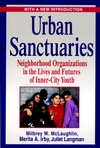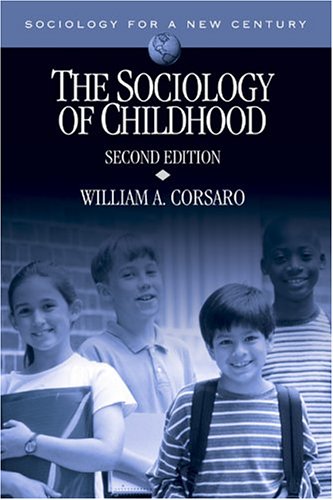 Walt Mueller's Supplemental Resources for Chapter 3
Walt Mueller's Supplemental Resources for Chapter 3Books/Articles Referenced:
1. Gene Edward Veith Jr - Postmodern Times
2. Douglas Groothuis - Truth Decay: Defending Christianity Against the Challenges of Postmodernism
3. Peter Kreeft - Back to Virtue
4. Stanley Grenz - A Primer on Postmodernism
5. J. Richard Middleton and Brian J. Walsh - Truth is Stranger Than it Used to Be
6. Alan J. Roxburgh - Reaching a New Generation
7. Marva Dawn - A Royal Waste of Time
8. Susan Campbell - Hidden Hooks in Children's TV Ads
9. Ravi Zacharias - An Ancient Message, Through Modern Means, to a Postmodern Mind in D.A. Carson - Telling the Truth
10. Gerard Kelly Retrofuture
11. Leonard Sweet - Postmodern Pilgrims
12. Timothy R. Phillips and Dennis L. Okholm - Christian Apologetics in the Postmodern World
13. Harry Blamires - The Post Christian Mind
14. Francis Schaeffer - He is There and He is Not Silent
15. Charles Colson - How Now Shall We Live?
16. Michael Stipe - The Party 2000
17. Dick Staub - Too Christian, Too Pagan
18. Alister E. McGrath - The Unknown God
19. John Stott - Between Two Worlds
Additional Books Discussed on Blog
1. David F. Wells - Above All Earthly Powers
2. Jamie Smith - Who's Afraid of Postmodernism?: Taking Derrida, Lyotard, and Foucault to Church
3. Myron B. Penner Christianity and the Postmodern Turn: Six Views
I need to be honest, I really didn't like this chapter. Also, forgive me in advance of reading this posting. I'm writing in a bit of a knee-jerk way - and so I am willing to be challenged and also willing to re-negotiate my position if you can prove me wrong.
But before I hear your reactions, let me clarify my opinion:
1. In evangelicalism, we have a hybrid version of postmodernity which served as a bandwagon term from the 1990s which was used to justify anything that was trendy, different, and new. As time progressed, there was a more sophisticated (and somewhat) elitist use of the term which has now evolved into the pseudo-intellectual movement known as 'the emergents.'
As a result, the term 'postmodern' has been used by philes and phobics alike to drive home personal agendas which have more to do with egos than they do a solid assessment (or even understanding) of this term. Therefore, postmodern (to the evangelical) means everything and nothing. It has become more a fad caught up in the commodities sold in the Christian section of WalMart than it does anything to do with French intellectuals, architecture, and Baudrillardian assessments of America!
With that being said, the concept of postmodern evangelicalism - as a pastiche of thought and action among a community - is worthy of being thought and talked about as a cultural phenomena.
2. The PoMo phenomena in youth culture is part of our culture - and it's here to stay whether you like it or lump it. However, it seems that Mueller has drawn upon a series of absolutist, foundationalist writers who are more about preserving the modern aspects of our culture than being willing to concede to the postmodern wave. This is a typical Gordon-Conwell reaction (where Mueller studied) which I think it unfounded. See for example, the work of James Sire, Ravi Zacharias, Douglas Groothuis, Marva Dawn, and David Wells.
I have a problem with this. Is it because I support post modernity? No. it's because I don't support a reactionist view that criticizes one philosophical framework without critically reflecting on the holes which exist in the pre-existing framework. In other words, I am frustrated with this perspective because it contradicts the solid missiological principles Borthwick was speaking about in just the previous chapter.
Guess what? Christianity seems to have done well in pluralistic, reletavistic cultures! In fact, Descartes himself helped to throw the theoretical wrench which has caused the chain reaction which has resulted in the emergence of the post-Christian west! So why would we be so committed to this as an ideal??
I call this our 'affair' with modernity! It's adulterous - and requires a better alternative framework. I'm not saying the alternative is to be found in Derrida and Foucault. I'm just saying that post-modernity has helped expose how tightly the church has clung to enlightenment ideals. Come on! Let's wake up!
We, as a church, are facing an identity crisis. If all that Christianity can be reduced to is what Immanual Kant came up with, then I might as well become an agnostic! That's not Christianity - that's what missiologists call 'syncretism' - the amalgamation of cultural accretions which become indistinguishable from what is theologically sound. I'm less worried about pomo than I am about modo - therefore a retreat into foundationalist assumptions isn't going to help youth. It will simply embitter and frustrate them.
Maybe Lesslie Newbigin had it right when he was in India. Maybe we need to freshly re-imagine our identity as the church? Maybe Booth-Tucker had it right when he also was in India.
What do you think? Am I a heretic - or is there some validity to what I'm saying? Check out Mueller's links and search for foundationalist solutions for the postmodern problems.
Steve















